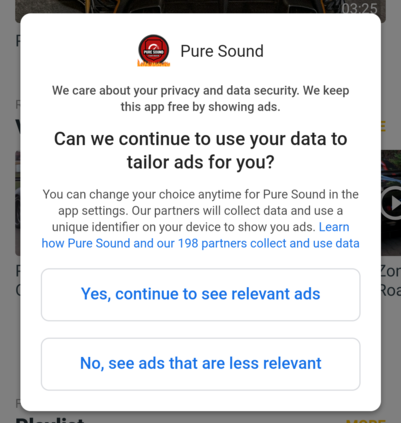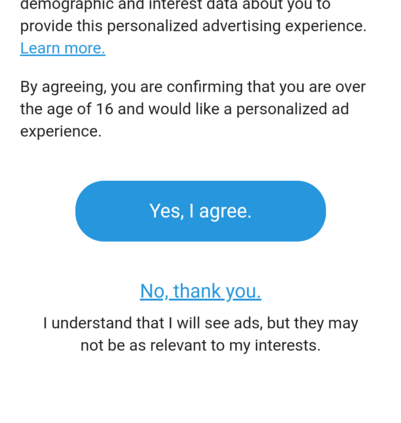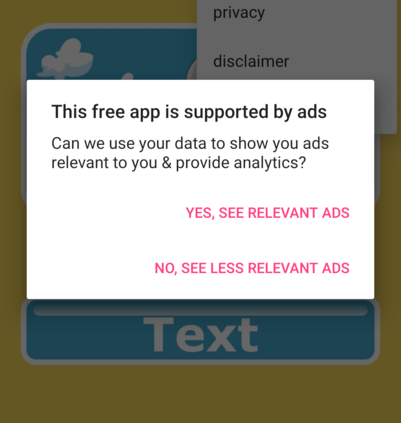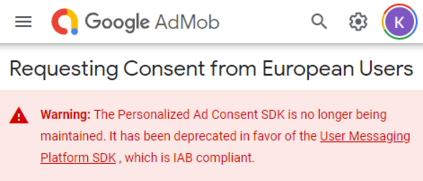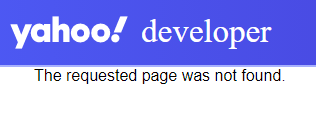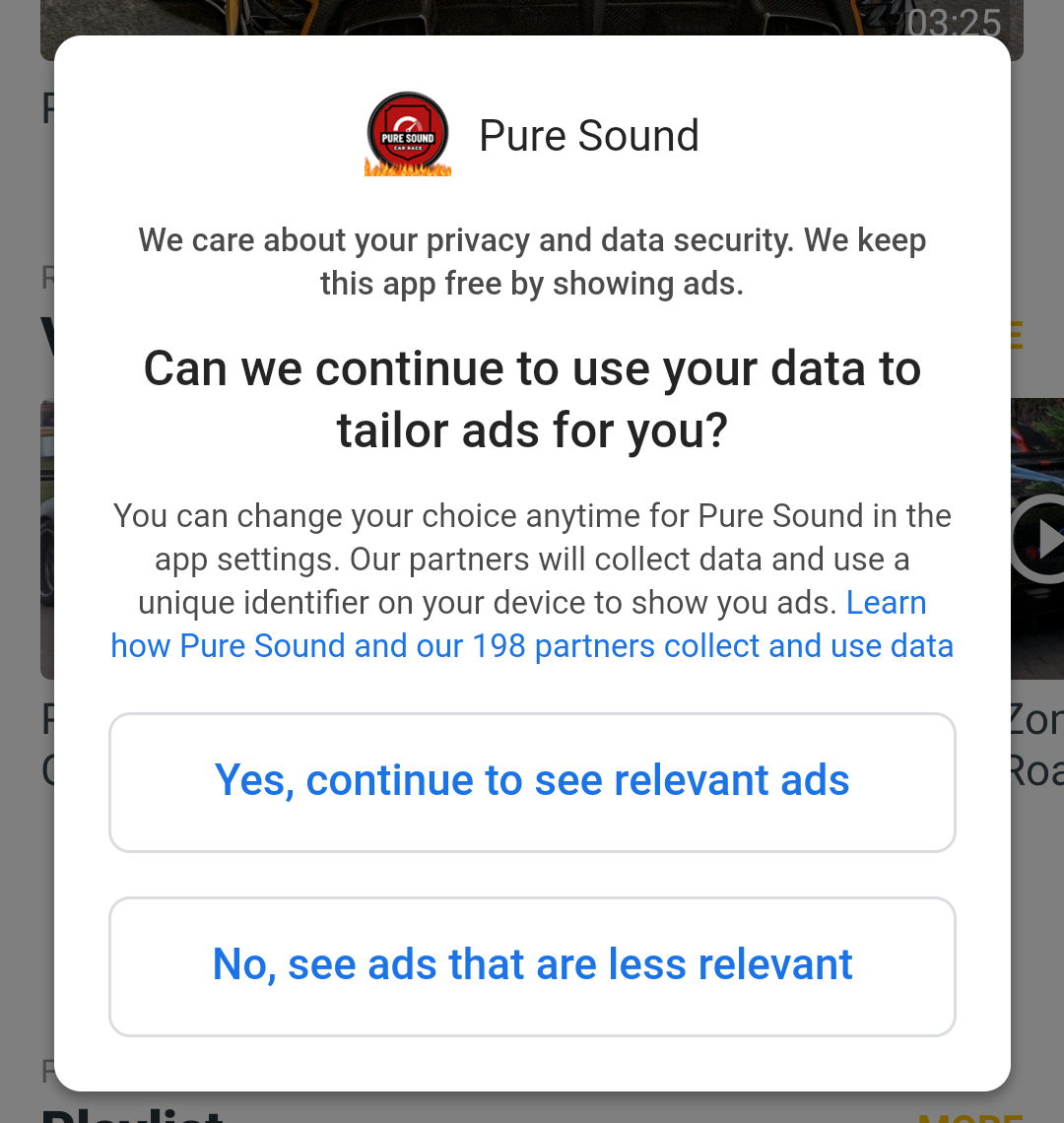Third-party tracking allows companies to collect users' behavioural data and track their activity across digital devices. This can put deep insights into users' private lives into the hands of strangers, and often happens without users' awareness or explicit consent. EU and UK data protection law, however, requires consent, both 1) to access and store information on users' devices and 2) to legitimate the processing of personal data as part of third-party tracking, as we analyse in this paper. This paper further investigates whether and to what extent consent is implemented in mobile apps. First, we analyse a representative sample of apps from the Google Play Store. We find that most apps engage in third-party tracking, but few obtained consent before doing so, indicating potentially widespread violations of EU and UK privacy law. Second, we examine the most common third-party tracking libraries in detail. While most acknowledge that they rely on app developers to obtain consent on their behalf, they typically fail to put in place robust measures to ensure this: disclosure of consent requirements is limited; default consent implementations are lacking; and compliance guidance is difficult to find, hard to read, and poorly maintained.
翻译:第三方跟踪使公司能够收集用户的行为数据,并跟踪其通过数字设备开展的活动。这可以让陌生人深入了解用户的私生活,而且往往在没有用户意识或明确同意的情况下发生。然而,欧盟和联合王国的数据保护法要求征得同意,如我们在本文中分析的那样,(1) 获取和储存用户设备上的信息,(2) 将个人数据处理作为第三方跟踪的一部分。本文件进一步调查移动应用程序中是否以及在多大程度上落实了同意。首先,我们分析谷歌游戏商店应用软件的代表性样本。我们发现,大多数应用程序都进行第三方跟踪,但在进行跟踪之前很少获得同意,表明可能普遍违反欧盟和联合王国隐私法的行为。第二,我们详细审查最常见的第三方跟踪图书馆。虽然多数人承认,他们依靠应用程序开发者获得他们的同意,但通常没有制定强有力的措施来确保这一点:披露同意要求是有限的;缺乏违约同意的执行;以及难以找到难以阅读和保存的合规指导。

